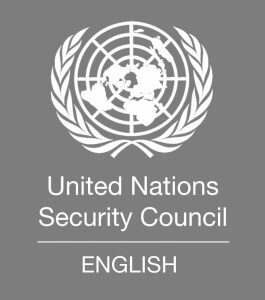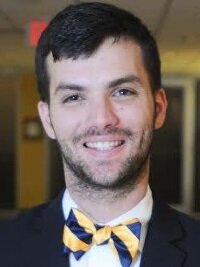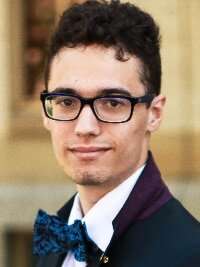
The Security Council is the primary international actor responsible for the maintenance of international peace and security and is also considered as the most powerful decisive organ of the United Nations. The Security Council takes the lead in identifying the existence of a threat to the peace or act of aggression and it calls upon the parties to a dispute to settle it by peaceful means and recommends methods of adjustment or terms of settlement. In certain situations, the Council is entitled to impose sanctions or authorize the use of force with the aim to maintain and restore international peace and security. As the Security Council may adopt new agenda items based on recent international events, it is strongly recommended for delegates to be aware of the international news in the months leading up to the conference.
Please note that this committee will contain a crisis component.
UNSC Background Guide 2017 | Position Paper Guide & Instructions | Delegate Resources The committee staff can be reached at
Topics:
Threats to international security caused by global terrorism
There is little doubt that a rise in terrorism over the past few decades has led to a series of new challenges for the global community. New threats to international security raise difficult questions for governments around the world. Delegates will have the opportunity to address some of these questions, and work together to create a collaborative multilateral framework for combating these issues.
The situation in Syria
The UN Security Council has the exclusive power, within the UN system, to authorize the use of military action, and the only body that can propose binding resolutions. It is for this reason that the UN Security Council must take up decisive actions once and for all in addressing the spiraling situation in Syria. The SC has already taken measures to target ISIS’s finances but this alone is not enough. Delegates will have the opportunity to take up solutions to diplomatically solving the Assad question and looking at possible coalition action against ISIS.
Committee Staff:
 DERRIK WHITLOW | DIRECTOR
DERRIK WHITLOW | DIRECTOR
Derrik is originally from Princeton, West Virginia, and just recently moved to Washington, DC after graduating from West Virginia University with degrees in History and International Studies, and a Masters of Public Administration. He has been involved with MUN since he was in high school and was also extensively involved with National Model UN at the collegiate level, representing West Virginia University as one of the most highly ranked MUN teams in the country. As a result, he has won a number of awards such as outstanding delegation, position paper awards, and peer voted best delegation representing numerous countries. Given his love of all things Model UN, Derrik chose to pursue working on staff at NMUN, and will an assistant director for the 2017 NMUN New York conference. At CANIMUN 2017, he will be serving as the director for the UNSC.
 ALEC SADER | CHAIR
ALEC SADER | CHAIR
Alec is a student who hails from Montreal and studies at Dawson College CEGEP in the program of Law, Society, and Justice. His short-term goal is to study law starting next year, and his long-term projects include working towards a Ph.D. with a focus in international and humanitarian law, culminating in a diplomatic career. Alec began participating in Model UN last year; his experience in multiple conferences has confirmed his aspirations in working internationally. His MUN experience includes participating and working in various committees, including the UNSC at CANIMUN 2016, a committee he is happy returning to this year as a staff member. He is currently Dawson College’s MUN president and is hoping to expand his international relations experience at CANIMUN by building relationships with a multitude of delegates and other staff members.
 DANIELE MEDLEJ | CRISIS DIRECTOR
DANIELE MEDLEJ | CRISIS DIRECTOR
Daniele is a recently graduated student from McGill University in a double major of Political Science and Sociology. During her summer post-graduation, Daniele completed an internship in the Office of the Prime Minister in Ottawa. She is currently taking a gap year from her studies in order to pursue her goals of working with the federal government. She is incredibly passionate about international relations, having initiated a Model UN for Beginners program at McGill University, and having participated with the school’s teams in multiple conferences, both as a staffer and as a delegate. As Crisis Director for CANIMUN 2017, her main priority is to challenge each delegate to give their best and to take full advantage of the committee’s tools and powers. The result will be unpredictable, yet nothing short of exciting, and she is looking forward to seeing all delegates step-up to the challenge.




